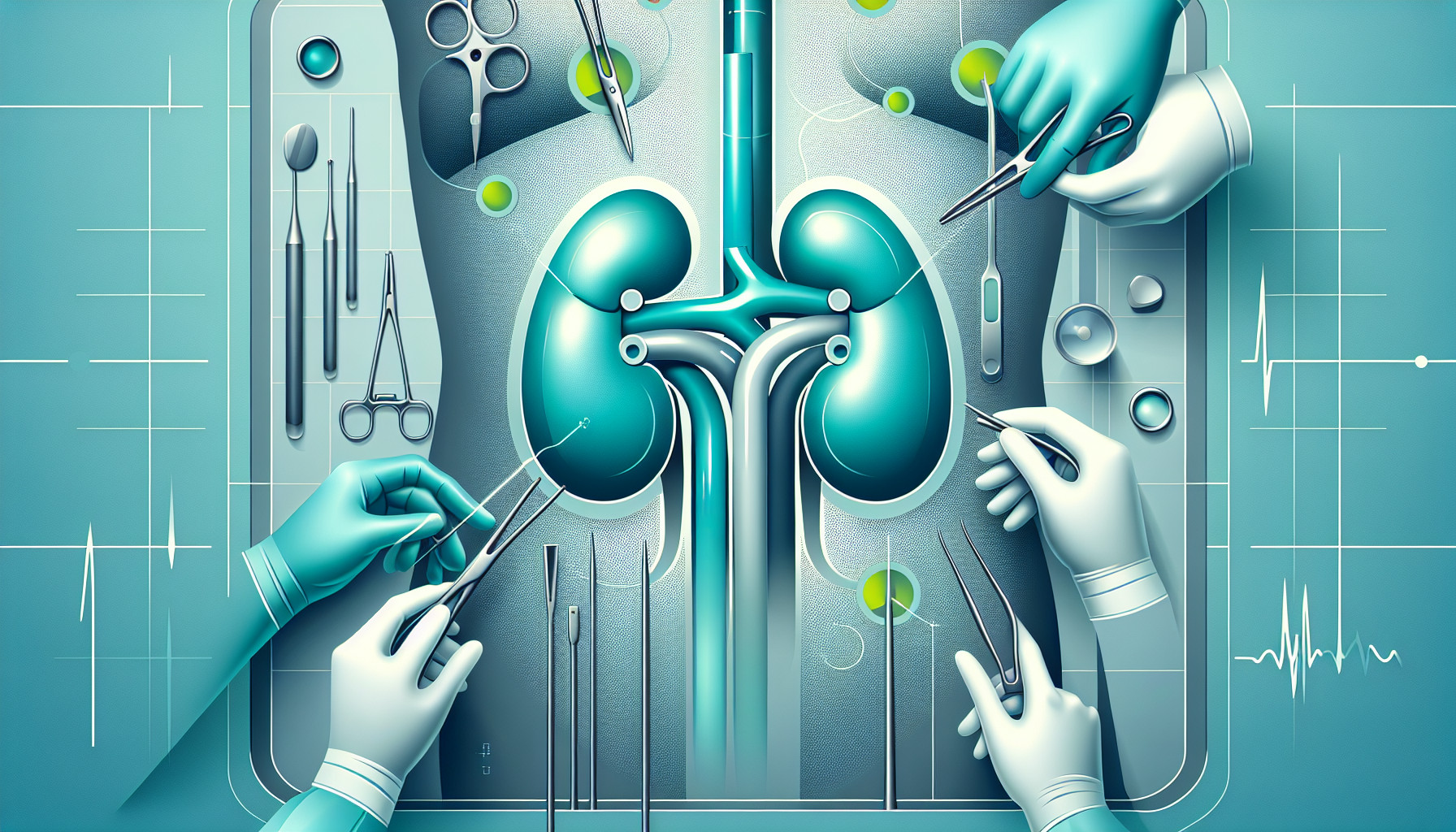Our Summary
This research paper looks at how many people are able to go back to work after having a kidney transplant, and what factors might help or hinder this process. The researchers looked at 18 different studies and found that, on average, about 39.4% of people were able to return to work within a year of their transplant.
They found that whether someone was able to go back to work was influenced by a range of things. Some of these, like a person’s age or their health conditions, can’t be changed. But others can be addressed, like the type of transplant operation they had, whether they had support from friends and family, their level of education, and if they were part of any educational programs.
The researchers suggest that it’s important to provide support that takes into account all these different factors, to help as many people as possible return to work after a kidney transplant. This could include things like rehabilitation programs, or educational initiatives.
FAQs
- What percentage of people are able to return to work within a year after a kidney transplant according to the research?
- What factors might influence the ability of a person to return to work after a kidney transplant?
- What kinds of support do the researchers suggest could help individuals return to work post-kidney transplant?
Doctor’s Tip
One important tip a doctor might give to a patient about kidney transplant is to follow a healthy lifestyle post-transplant to ensure the success of the new kidney. This includes maintaining a balanced diet, staying active, taking medications as prescribed, and attending regular follow-up appointments with your healthcare team. It’s also important to avoid smoking and limit alcohol consumption to protect your new kidney and overall health. By taking care of yourself, you can increase the chances of a successful kidney transplant and enjoy a better quality of life.
Suitable For
Patients who are typically recommended for a kidney transplant include those with end-stage renal disease, which is the final stage of chronic kidney disease where the kidneys are no longer able to function on their own. Other factors that may make a patient a good candidate for a kidney transplant include:
- Having a relatively good overall health status, aside from their kidney disease
- Being willing and able to comply with the necessary post-transplant care and follow-up appointments
- Having a suitable donor, whether living or deceased
- Having realistic expectations about the risks and benefits of a kidney transplant
It is important for patients to undergo a thorough evaluation by a transplant team to determine if they are a suitable candidate for a kidney transplant. This evaluation will assess the patient’s overall health, medical history, and any potential risks or complications that may arise from the transplant surgery. Ultimately, the decision to undergo a kidney transplant is a personal one that should be made in consultation with a healthcare provider.
Timeline
Before a kidney transplant, a patient typically undergoes a series of evaluations and tests to determine if they are a suitable candidate for the procedure. This may include blood tests, imaging tests, and consultations with a transplant team. Once a patient is deemed eligible for a transplant, they are placed on a waiting list for a suitable donor organ. The wait time for a transplant can vary greatly depending on factors such as blood type, tissue match, and availability of donor organs.
After receiving a kidney transplant, the patient will undergo a period of recovery in the hospital, typically lasting several days to a week. They will be closely monitored for signs of rejection or complications. Following discharge from the hospital, the patient will need to take immunosuppressant medications to prevent rejection of the new kidney. They will also require regular follow-up appointments with their transplant team to monitor their progress and adjust their medication regimen as needed.
In the months and years following a kidney transplant, the patient will need to make lifestyle changes to maintain the health of their new kidney. This may include following a special diet, staying active, and avoiding certain medications that can be harmful to the kidney. The patient will also need to undergo regular blood tests and check-ups to monitor the function of the transplanted kidney.
Overall, a kidney transplant can greatly improve a patient’s quality of life and allow them to return to a more normal routine. However, the process involves a significant amount of commitment and ongoing care to ensure the long-term success of the transplant.
What to Ask Your Doctor
- How long will it take for me to recover from the kidney transplant surgery and return to work?
- Are there any specific factors in my medical history that may impact my ability to return to work after the transplant?
- What type of support or resources are available to help me transition back to work post-transplant?
- Are there any restrictions or limitations I should be aware of in terms of my work duties or physical activity post-transplant?
- Are there any specific lifestyle changes or precautions I should take to protect my new kidney while at work?
- Will I need to take any medications or follow a specific treatment plan that may impact my work schedule or performance?
- Are there any long-term implications or considerations I should be aware of regarding my ability to work after the transplant?
- Are there any support groups or counseling services available to help me navigate the emotional and psychological aspects of returning to work after a kidney transplant?
Reference
Authors: D’Egidio V, Mannocci A, Ciaccio D, Sestili C, Cocchiara RA, Del Cimmuto A, La Torre G. Journal: Occup Med (Lond). 2019 Oct 1;69(6):412-418. doi: 10.1093/occmed/kqz095. PMID: 31394573
